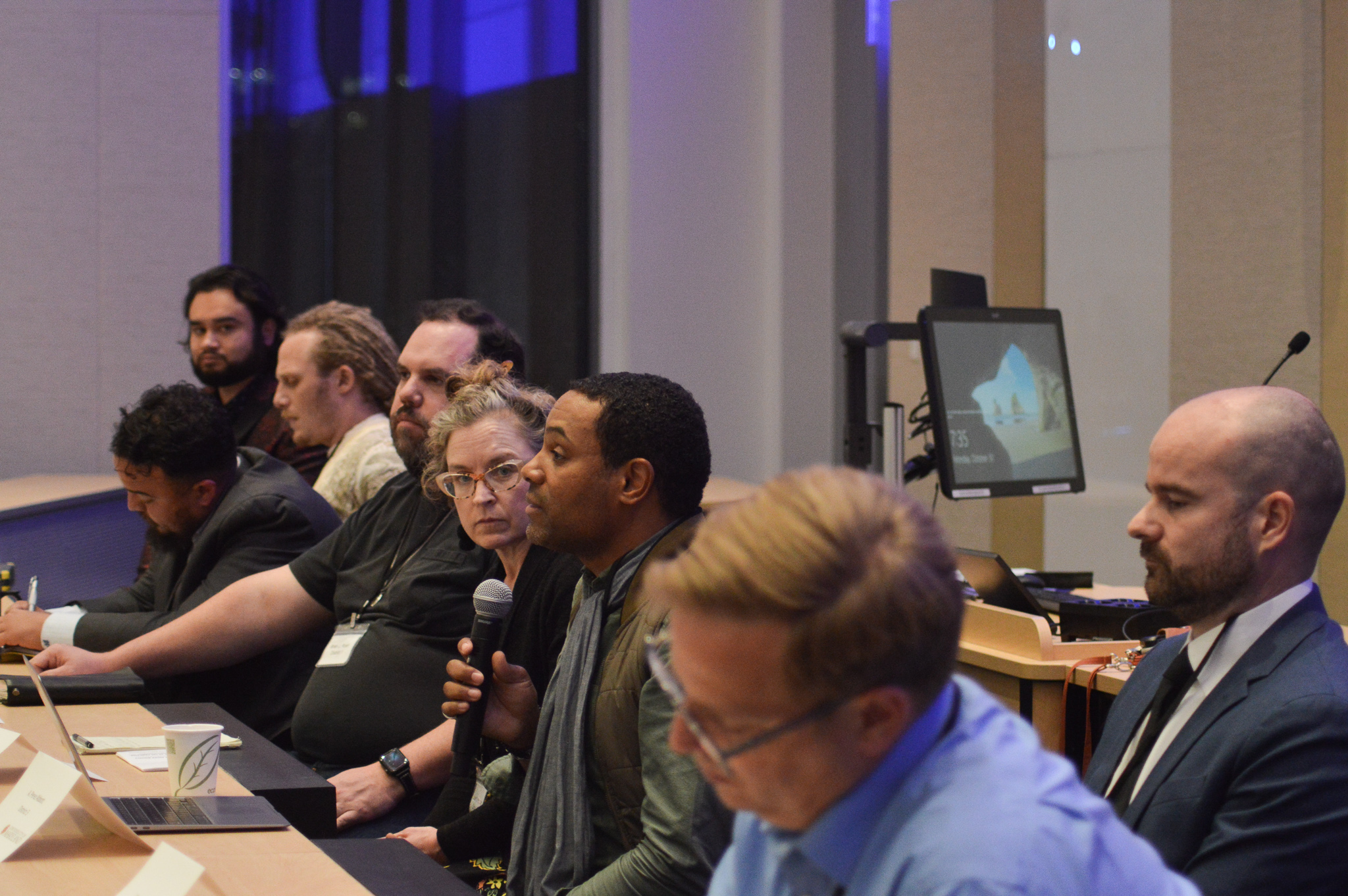College Park mayor and council candidates discussed their positions on affordable housing, diversifying businesses and mental health resources Monday in a town hall at Thurgood Marshall Hall.
Organizers of the event included the University of Maryland’s Student Government Association and University Honors ahead of the Nov. 5 city election. Organizers said they hoped the town hall would give students the opportunity to directly familiarize themselves with the city’s political landscape and its candidates for public office.
Kristjana Maddux, an associate professor in this university’s communication department, has encouraged her students to get involved in the local election process in College Park.
“In their first semester, that’s a great time to learn more about this new community that you’ve adopted for the next four years and understand what’s happening here,” Maddux said.
City council candidates answered questions from students at this university and College Park residents. College Park Mayor Fazlul Kabir, who is running uncontested in the city election, also held a live question and answer session with attendees.
District 1 council member Alan Hew and District 4 council members Denise Mitchell and Maria Mackie were not present at Monday’s town hall.
[College Park’s District 3 city council candidates debate term limits, affordable housing]
Increasing affordable housing options in the city took center stage in the candidate discussion forum.
District 3 candidate Perez Abbott emphasized that all housing developments should be accessible to residents in every income bracket.
“Making sure that those are priorities in our agreement with new construction moving forward is key,” Abbott said.
Mollie Anderson, a freshman enrolled in letters and sciences, noted the lack of affordable housing options has had an immense impact on students, leaving many concerned.
Improving financial literacy among residents and students could help address the cost of living issue, according to District 1 candidate Jacob T. Hernandez.
“Many of us have a hard time even beginning to understand how to budget our monthly income,” Hernandez said. “This doesn’t stop at just being a student, it continues on as a grown-up.”
District 3 council member Stuart Adams, who is running for re-election, highlighted that the council is working on a need-based student subsidy pilot program. The first pilot could aid about 100 to 125 students by covering their first month’s rent for off-campus housing as soon as early 2024, Adams added.
In addition to affordable housing, candidates discussed ways to diversify businesses across the city as new housing options proliferate.
[College Park’s District 1 city council candidates debate development, transit]
District 1 candidate Brian Roan emphasized the importance of developing more community friendly spaces.
“We are just not doing a good enough job as a city attracting the kinds of infrastructural businesses that are actually going to help keep our community healthy,” Roan said. “We need to spend more time and spend more effort and do more research on the best ways to draw those people into our neighborhoods.”
Bryan Haddad, a District 1 candidate and College Park small business owner, added that the city can improve upon advocating for small businesses against corporations.
“A main problem I have with my small business is getting my landlord to fix anything on the property … It’s always a huge headache,” Haddad said. “I would really appreciate the city’s support pushing back against them.”
Some council members, including District 2 council member Susan Whitney, praised the city’s partnership with Care Solace— a mental health care coordination service.
The new partnership will increase accessibility to mental health resources in the city and encourage residents to seek mental health care, Whitney said.
District 1 candidate Kamthorn Clary noted that it is crucial that the city details how to take advantage of these new mental health resources for residents.
“I want to amplify your need,” Clary said. “I want you to have the resources, not only know that the city has it, but how to use it.”
Kabir highlighted the importance of student engagement with city politics and encouraged students to remain involved in the process moving forward.
“We should be lucky in College Park as a whole as a community to have you all,” Kabir said. “There’s so much potential that each one of you has, and the whole community has to contribute to make College Park a better place for everyone.”



